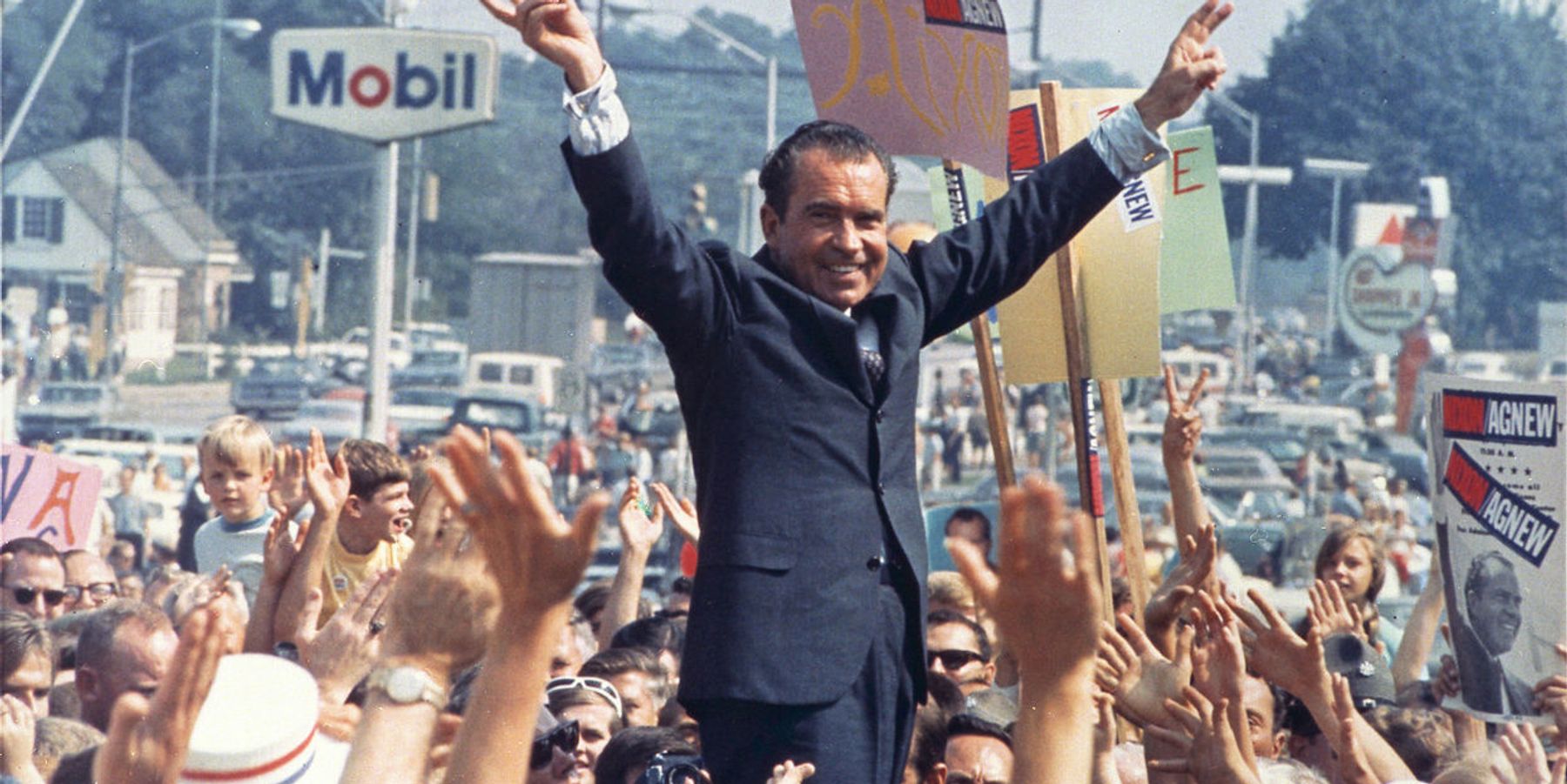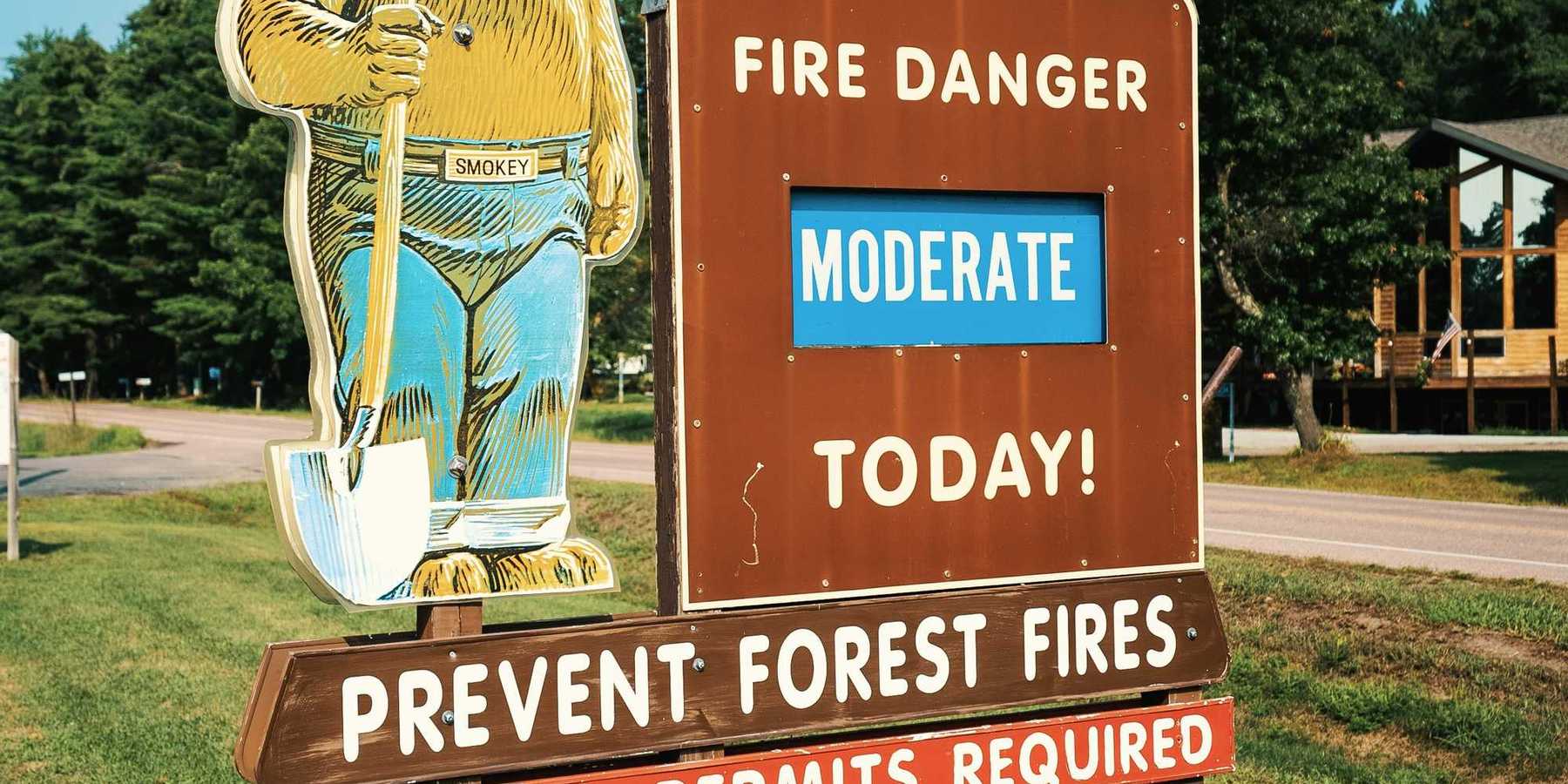
“Mission Accomplished” on COVID-19?
President Trump's COVID-19 claims follow a long US tradition of powerful men saying stupid things about health and the environment.
Recent environmental history shows a pattern of powerful men saying regrettable things about the environment.
Though not his forte, President Trump would do well to listen.
Lewis Strauss: A philanthropist and science buff, Strauss ran the U.S. Atomic Energy Commission, the Cold War-era agency charged with developing atomic weapons. Our country squeezed off a series of hundreds of nuclear weapons tests in the Pacific Ocean, Nevada, and elsewhere. The Russians did the same, all in the name of blasting each other to Kingdom Come.
Strauss's AEC also chased what we wistfully called "The Peaceful Atom," in search of a never-ending race to power our newfangled homes, TV's and air conditioners. In a 1954 speech to a gathering of science journalists, he gave a vision of a split-atom future: "Our children will enjoy in their homes electrical energy too cheap to meter."
Nuke advocates insist Strauss was referring to nuclear fusion, but even so, it's a brightly glowing red herring: Fission is failing as a power source; fusion's never come close.
Today, nuclear power is withering, despite a powerful marketing tool as a "carbon free" power source. Aging nuke plants produce juice that's getting roundly outbid by fracked natural gas and its formidable environmental baggage, and increasingly by wind- and solar-powered generation.
Ronald Reagan: His mediocre film career morphed into a California governorship and then a two-term presidency marked by two landslide victories.
In California, Reagan was credited with an environmental whopper—which he may never have actually said.
"You've seen one tree, you've seen them all" is the widely-accepted Reaganism for his apparent indifference toward nature. Problem? In more than a half century's searching of archives, no one's found film, video, newsclips, or speech clips where Reagan actually says this. The closest Reagan is known to have come is a 1966 speech to the Western Wood Processing Association, where he said, "A tree is a tree. How many more do you need to look at?
But here's a consolation prize: Reagan's Interior Secretary James Watt, had a well-documented line for his environmental foes: "If the troubles from environmentalists cannot be solved in the jury box or at the ballot box, perhaps the cartridge box should be used."
J.D. Spradley: A veteran oil industry lobbyist, Spradley was part of the U.S. delegation to an early United Nations Climate Conference in December 1990. Spradley was quoted by the Washington Post as attempting to pacify a jittery delegation from Bangladesh: "The situation is not a disaster; it is merely a change. The area won't have disappeared; it will just be underwater. Where you now have cows, you will have fish."
Richard Nixon: Nixon is remembered as an unlikely environmentally gifted president whose pen created the Endangered Species Act, the Clean Air Act, and the Environmental Protection Agency. But a more candid moment was revealed in his infamous Watergate Tapes, when he complained to an Oval Office meeting with auto industry CEO's that enviros "want us to live like a bunch of damned animals."
George H.W. Bush: In his landslide 1988 victory, Papa Bush tarred his opponent, Massachusetts Governor Mike Dukakis, with the legendary filth of Boston Harbor. Bush vowed to be "the Environmental President."
Four years later, he mocked Vice Presidential candidate Al Gore as "Ozone Man."
Barack Obama: Generally regarded fondly by environmentalists, Barack Obama raised eyebrows on April 2, 2010, as he prepared to ease up on offshore oil exploration limitations. "It turns out that, generally, oil rigs don't cause spills."
Eighteen days later, the Deepwater Horizon platform blew up, killing 13 workers, leading to the most catastrophic spill in history.
So far.
Paul LePage: It must have taken Maine voters eight years to figure out how LePage became their governor, because in 2010, they sent him back for a second four-year term.
The gruff, burly former small-town mayor hit Peak Stupid the following year, when the Maine Legislature weighed a bill restricting the use of bisphenol-A (BPA), a plastics additive that mimics hormones and is linked to a wide array of health problems. LePage distilled a growing body of science that had already brought BPA restrictions in Canada, the European Union and eight U.S. states down to this: "The only thing that I've heard is if you take a plastic bottle and put it in the microwave and you heat it up, it gives off a chemical similar to estrogen. So the worst case is some women may have little beards."
God: He kicks off the Old Testament with this gem from Genesis, 1:26 (KJV) : "And God said, Let us make man in our image, after our likeness: and let them have dominion over the fish of the sea, and over the fowl of the air, and over the cattle, and over all the earth, and over every creeping thing that creepeth upon the earth."
If you thought "walking it back" was a contemporary political cliché, The Creator can forgive you. Just a few Old Testament books later, He backs off as only He can. In Leviticus, He does a Divine flip-flop, declaring "the earth is our mother. Whatever befalls the earth befalls the sons and daughters of the earth," smoothly turning "dominion" into "you break it, you bought it."
Mitigating factor: The Man Upstairs is all over the map in Leviticus. He condemns the eating of shellfish in Chapter 11, invents the moyl industry in Chapter 12, and, in a Chapter 16 passage that's the most popular biblical one for modern-day homophobes, He pronounces gay people to be practicing "an abomination."
I'll stop here.
God's not done warming up the room.
Peter Dykstra is our weekend editor and columnist. His views do not necessarily represent those of Environmental Health News, The Daily Climate or publisher, Environmental Health Sciences.
Contact him at pdykstra@ehn.org or on Twitter at @Pdykstra.
Banner photo: Richard Nixon gives his trademark "victory" sign while in Paoli, Pennsylvania, during his successful campaign to become President of the United States, July 1968. (Credit: GPA Photo Archive)













